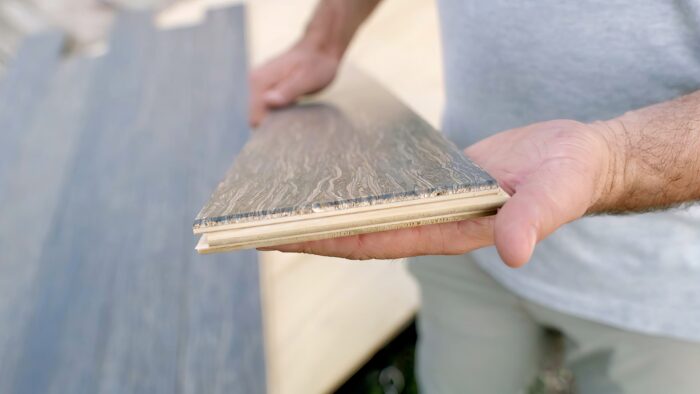Matthew Fulkerson faced the daunting task of how to transform a retired Cold War missile silo in north central Kansas into a sustainable Airbnb OMG Destination. His solution literally started on the ground floor when he chose HempWood that uses U.S. Soy in its adhesive for wood flooring and other building materials. Now, Atlas Ad Astra Adventures Resort is poised as a prime destination for sustainable staycations.
The driving force behind the project is Fulkerson, the resort’s owner. His commitment to sustainability is evident in every aspect of the development. From the choice of construction materials to the innovative use of renewable resources, Atlas Ad Astra Adventures Resort is focused on eco-friendly hospitality. It uses HempWood, which is a non-toxic hemp composite wood that can be used for a wide variety of interior design and general construction.
HempWood founder Greg Wilson knows the value of healthy materials. Wilson’s career began in flooring mills in overseas countries. After working around formaldehyde-based adhesives and other products of concern, Wilson lost 6% of his lung capacity. Wilson’s health concern kickstarted his journey back to the United States to launch HempWood that counts on soy-based adhesives that are high performing and safe for workers as well as customers.
According to the U.S. Environmental Protection Agency, formaldehyde is a colorless, flammable gas at room temperature and has a strong odor. Exposure to formaldehyde may cause adverse health effects, ranging from skin and lung irritation to cancer. Formaldehyde can be found in household products, glues and building materials, such as resins used in the manufacture of composite wood products (i.e., hardwood plywood, particleboard, and medium-density fiberboard).

Matthew Fulkerson stands outside of the Atlas Ad Astra missile silo. The silo has been turned into an Airbnb that also houses soy backed Hempwood.
Wilson notes how the newer, soy-based adhesives can be a gamechanger in the world of sustainable building materials. With support from the United Soybean Board (USB), HempWood is helping develop, commercialize, and market soy-based glues in its products. HempWood’s adhesives are made with U.S. Soy as well as U.S.-grown industrial hemp.
“As consumers become more conscious of their environmental impact, the demand for sustainable alternatives continues to grow,” says Wilson. “We are proud to offer a product that promotes sustainability, is high quality, and sources from U.S. soybean growers. And the use of soy in places like a missile silo-based lodging is just plain cool!”
Through the soy checkoff, USB is helping propel HempWood’s sustainability journey. “USB continues to look to the future by investing in research and initiatives that promote and diversify the use of soy,” says Kurt Maurath, a soybean farmer from Kansas. “Soy protein has a proven track record in adhesives that don’t require added formaldehyde. Soybean growers are glad to see another innovative use for it in wood floorings, too.”
Priced competitively with other hardwood flooring, Hempwood also has a hardness of more than 2,000 on the Janka scale, which measures the susceptibility of material to denting and tearing.
For Fulkerson, a soy-based product that combines sustainability and performance means he gets a modern design in his building that will catch customer’s eyes, catch the eye of architects, and promote sustainability.
“This groundbreaking endeavor is poised to become one of the first of its kind in the United States, combining education, adventure, and a dedication to sustainable products,” says Fulkerson.
This year, Atlas Ad Astra’s resort kicks into high gear when it officially opens for bookings as an Airbnb OMG Destination. Airbnb rewarded the company with a grant based, in part, on its originality and sustainability measures.


